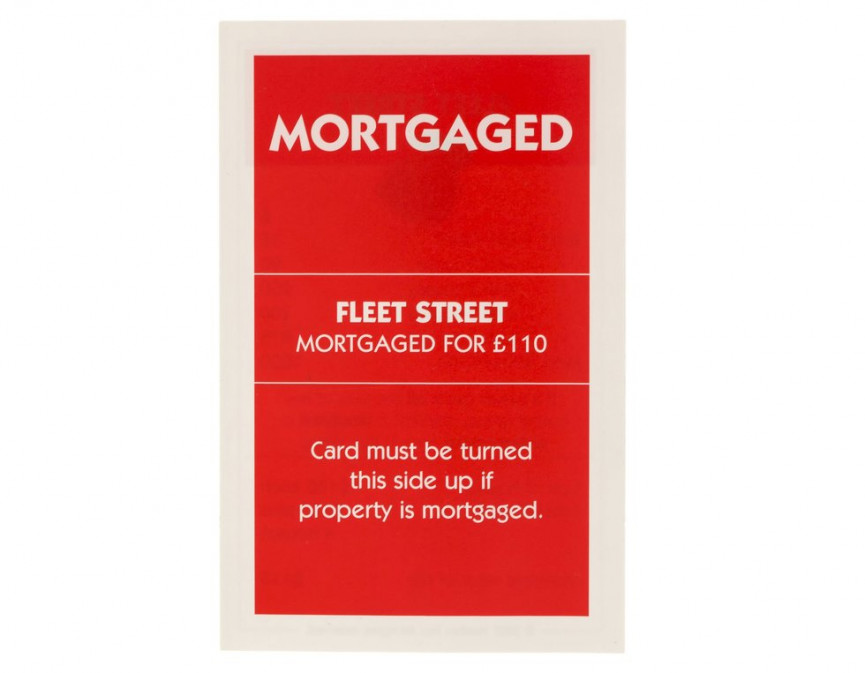Maintenance disputes that emerge after the death of a borrower in some cases expose that loans must not have been released in the first location. USA TODAY's analysis of reverse home mortgage lending patterns and foreclosures discovered clusters in African American urban neighborhoods evidence of predatory practices, according to market watchdogs (what do i need to know about mortgages and rates). The work was a collaboration with Grand Valley State University, with assistance from how to not inherit timeshare contract the McGraw Center for Company Journalism.
Department of Housing and Urban Advancement has actually mandated stronger monetary evaluations of senior citizens before a loan is released. Latoya Gatewood-Young was surprised to learn there were five individuals on the title to her grandpa's house, which has remained in her family for a century. Jasper Colt, USA TODAYWhen Gatewood-Young's grandfather died in 2016, the family was amazed to find that his rural Maryland house on 10 acres had a reverse home loan lien against it. Sometimes, the heirs may select to deed the property back to the lending institution, suggesting the successors launch the home to the loan provider and the loan provider becomes the brand-new owner. Although this ought to be scheduled for circumstances where there is no excess equity left, it is a feasible ways to avoid foreclosure and for the heirs to ignore the residential or commercial property without any more monetary obligations.

These are backed and insured by the FHA and overseen by the U.S. Department of Housing and Urban Development (HUD). Government-backed loans provide benefits created to protect customers, enduring spouses, and their heirs. In addition, HECM reverse home mortgages are non-recourse loans, implying a lender can not seek option against other possessions for payment.
In summary, if a co-borrowing partner or successor acquires a home with a reverse mortgage, they will never owe more than the residential or commercial property deserves and they will never be required into selling their possessions to cover the financial obligation. If they sell the house for more than the balance of the reverse mortgage, they can keep the remaining equity as profits.
When an enjoyed one passes away, life can feel disorderly. By having a look at the average timeline of a reverse mortgage after death, you and your family can get ready for how to settle your affairs and reduce confusion later on. A loan servicer sends out a condolence letter usually within 30 days of the death of the last making it through borrower.
Heirs will receive 6 months' time to choose how to proceed. During this time, interest on the loan balance continues to accrue and regular monthly insurance premiums should be paid, so it's within the successor's best interest to act rapidly when handling a reverse mortgage after death. If required, the estate may ask for up to two 90-day extensions, subject to HUD's approval.
Get This Report about What Does Recast Mean For Mortgages
After this time, the loan might enter into default and a servicer may start the foreclosure treatments on a reverse home mortgage property. According to the National Reverse Home Mortgage Lenders Association (NRMLA), a wfg fee calculator servicer might initiate foreclosure on a reverse mortgage after death if: The preliminary Due and Payable notification is disregarded The home has not offered after the 90-day extensions have expired The borrower has no successors If beneficiaries are actively working to arrange financing or sell the home to satisfy a reverse home mortgage after the owner dies, the foreclosure may be delayed.
Speaking about how to prepare for life after death can be unpleasant for some households, however by making certain you and your enjoyed ones are gotten ready for what follows, you can enjoy life together to its fullestwith less stress later. If you're still unpredictable about how a reverse mortgage works and would like information on this type of financing, don't hesitate to get in touch with a valuable member of our GoodLife team who will more than happy to address your questions or click on the link listed below.

If you get a House Equity Conversion Home Mortgage (HECM) the most typical kind of reverse mortgagethe loan becomes due and payable under specific situations, like when you die. Your heirs will then have several options for dealing with that financial obligation. They can: pay off the reverse home mortgage and keep the home sell the house and utilize the earnings to settle the reverse home loan financial obligation offer the home to the lender, or let the loan provider foreclose.
HECMs are nonrecourse, which suggests that the lender can't get a shortage judgment after a foreclosure or deed in lieu of foreclosure. In a regular mortgage loan, the borrower gets a lump amount from the lender and makes monthly payments towards paying the money back, plus interest. With a reverse home loan, rather of getting an upfront amount that the borrower needs to pay back progressively, the debtor usually gets routine payments, as much as the maximum loan quantity.
A reverse mortgage can likewise be available in a lump sum. The debtor has to pay the loan back unless and until defined events take place, like when the borrower passes away and the property is not the principal house of at least one making it through debtor. Before getting a reverse mortgage, you must totally comprehend how they work, and discover the dangers and requirements connected with them.
After the debtor dies and the home is not the primary home of at least one making it through borrower, the beneficiaries can handle the financial obligation in among the following four ways. With a HECM, under HUD policies and standards, the successors may keep the home by paying the mortgage balance or 95% of the existing appraised value of the residential or commercial property, whichever is less.
The Main Principles Of How To Add Dishcarge Of Mortgages On A Resume
With a HECM, beneficiaries might sell the residential or commercial property for the lower of the loan balance or 95% of the assessed worth of the house. The successors can sign over the title to the house to the lending institution with a deed in lieu of foreclosure. Giving the property to the lending institution will satisfy the debt and prevent a foreclosure. after my second mortgages 6 month grace period then what.
( To read more, see Nolo's article Foreclosure of Reverse https://charliewtwu922.weebly.com/blog/the-ultimate-guide-to-what-is-the-enhanced-relief-program-for-mortgages Home Mortgages.) HECMs are nonrecourse, which implies that the lending institution can't get a deficiency judgment after a foreclosure or deed in lieu of foreclosure. Similarly, if the heirs settle the loan or offer the property, they will not have to pay more than 95% of the appraised worth.